Before I say more about Pearl Buck, there is something you should know about me: I have a great affection for hidden writers, those whose reputations haunt hard-to-find alleyways on the cultural map, whose nationality or language has kept them in the shadows of the recognized monuments; writers whose books, once considered great achievements, now sit forgotten in spottily frequented library stacks, or are stumbled across in mould-scented used bookstores when traveling in unlikely places. Such books are heavy with the stories of their own journeys. Their covers are often dull, the embossing faded, or, if it is a paperback, the cover art is unnervingly earnest with the life of its day, reminding us that books, too, have lifespans.
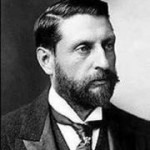
The stories of these books, their trajectory from the author’s flaming pen to a collective, embering memory, are as varied as their contents, but, like their contents, follow a few essential gestures. Sometimes a writer’s work gets left in the dust raised as the culture shifts; social attitudes change, blind spots are exposed and corrected and all at once we find that King Solomon’s Mines have yielded, not gold, but Song of Solomon.

Or something new seems to appear under the sun; one writer breaks so spectacularly through a wall that nobody even knew was there that every writer to come after must reassess the whole literary project or risk obsolescence. Waiting for Godot, for example, Lolita, and To The Lighthouse, redefined not just what thoughts or aspects of experience literature could apply itself to, but, in some sense, reshaped what we might, on the average afternoon, think about or experience. Such tectonic shifts can all at once knock other writers, even excellent ones, off the shelves and into the archives. Wasn’t Shakespeare just Christopher Marlowe’s luck.

Often its all rather less grandiose than this; one writer simply etiolates in the shadow of another. Think of Louis McNiece, a magnificent poet by any standard. Too bad for him, and perhaps for us, that he diligently tended his verse while his compatriot, W. H. Auden, was depleting the English-speaking world’s supply of ink.
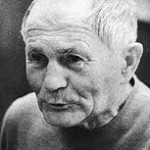
Sometimes, for whatever reason, a writer doesn’t export well. The spectacularly gifted Milan Kundera is, at least to Americans, by orders of magnitude the best known Czech novelist (It is a mystery that he has not yet been ushered into the ranks of the Nobelity). But he himself defers to his equally gifted compatriot, Bohumil Hrabal, who, for all his high regard among those lucky to know his astounding satires, is still a name you must work considerably harder to put yourself in line to hear. Even having two famous movies made of his novels, Closely Watched Trains and I Served the King of England, has not made his name trip off more tongues.
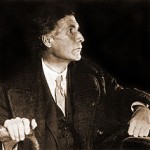
Sometimes the reasons for a writer’s relative obscurity are readily apparent, discoverable in the writing itself. Take for instance the book I am currently reading, A Glastonbury Romance, by John Cowper Powys. It is not by any means an unknown work, but there is no mystery as to why it is rarely encountered. It is a lumbering hippopotamus of a novel, eleven hundred pages of animistic mysticism, insufficiently sublimated sexuality, religious hysteria and spiritual agony, all relaid in the most autumnally swollen prose I can remember. I happen to love it. Or, I should say, I love reading it. There is a difference. It fascinates me as would the grooming habits of someone who is unequivocally brilliant, but perhaps a bit socially maladjusted. I am reading it because one of the goddesses in my literary pantheon, Annie Dillard, deems it a work of genius. This it may be, but if so, it is one that could only appeal to a highly circumscribed group of readers. Which means, of course, there is a measure of ego gratification that attends my personal conquest of its final page.

In other cases, the reasons for a writer’s obscurity are complex and hard to fathom. We’ve all heard of Alexandr Solzhenitsyn, but only now is a tiny reading public becoming aware of the great Vassily Grossman. Sam Sacks, writing for the literary web site, The Quarterly Conversation, suggests that when his masterpiece, Life and Fate, was published in the United States in 1985, twenty-one years after his death, Soviet-era literature in America had already been “spoken for” by the redoubtable Solzhenitsyn, and that, “whereas Grossman was dead, Solzhenitsyn was very much alive, and in fact a celebrity, periodically sallying out from rural Vermont to fulminate against Western decadence or something else that caused excitement. Life and Fate, on the other hand, could do nothing unless it was read, and with 871 pages and over 160 characters, it was and remains a book that’s easier to tip one’s hat to than read.”
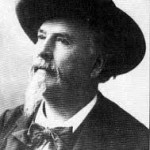
This subject, the darkening of a book’s life, the leave-taking of certain oeuvres, is one to which I will return frequently in future posts because one of the functions the Nobel Prize has served, especially in its first six or so decades, has been to provide a kind of living center for retired reputations. Take, for example, Fredric Mistral, who won in 1904. After a lifetime of service, through poetry, to the dwindling Occitan language of Provence, his conservative, bucolic verse has become among the most difficult to find of any body of work represented on the list. If he were not a laureate, there would be almost no occasion to run across even his name. There must be a few souls in the world who still read him. Who are they, and where?
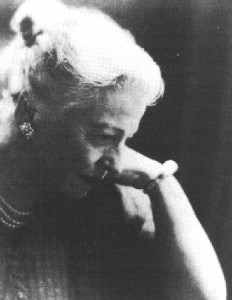
And then there are the hundred works of Pearl Sydenstricker Buck. The publication of The Good Earth in 1931 made her an instant celebrity. It was her second novel. By 1935, she had published two companion novels to make a trilogy called The House of Earth. It took an uncharacteristically swift three years for the Nobel committee to leap over an American mountain range whose peaks included F. Scott Fitzgerald, Theodor Dreiser, John Dos Passos, Willa Cather, Wallace Stevens, and the already far more famous William Faulkner, T. S. Eliot and Ernest Hemingway, to make her the third American, and the fourth woman to receive its imprimatur (Edith Wharton had died, un-honored, the previous year).
Today it is difficult to fathom why Stockholm would single her out. The claim has been made that she is the most translated of all American authors. This may be, but, with the exception of her one famous book, she must also be among the least read. Her reputation’s current repose on the lower slopes of a mountain whose summit it once came within sight of owes to reasons that are both apparent, of the John Cowper Powys variety, and complex. Regarding the latter, I will not torture out a comparison to a writer such as Grossman, except to say that, like him, at least some of her current standing has to do with factors other than her writing. This I will address in my next post.
